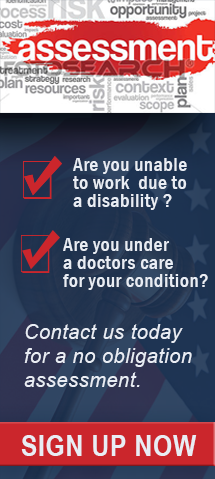Our attorneys represent Social Security Claimants suffering with Schizophrenia and other mental disorders. Our lawyers travel to disability hearing offices and appear before Administrative Law Judges (ALJs) throughout the United States including Louisiana, Mississippi, Alabama, New Mexico, Washington and Florida.
The Social Security Disability Listing for Schizophrenia is Listing 12.03.
12.03 Schizophrenic, paranoid and other psychoticdisorders: Characterized by the onset of psychotic features with deterioration from a previous level of functioning.
The required level of severity for these disorders is met when the requirements in both A and B are satisfied, or when the requirements in C are satisfied.
A. Medically documented persistence, either continuous or intermittent, of one or more of the following:
1. Delusions or hallucinations; or
2. Catatonic or other grossly disorganized behavior; or
3. Incoherence, loosening of associations, illogical thinking, or poverty of content of speech if associated with one of the following:
a. Blunt affect; or
b. Flat affect; or
c. Inappropriate affect;
OR
4. Emotional withdrawal and/or isolation;
AND
B. Resulting in at least two of the following:
1. Marked restriction of activities of daily living; or
2. Marked difficulties in maintaining social functioning; or
3. Marked difficulties in maintaining concentration, persistence, or pace; or
4. Repeated episodes of decompensation, each of extended duration;
OR
C. Medically documented history of a chronic schizophrenic, paranoid, or other psychotic disorder of at least 2 years’ duration that has caused more than a minimal limitation of ability to do basic work activities, with symptoms or signs currently attenuated by medication or psychosocial support, and one of the following:
1. Repeated episodes of decompensation, each of extended duration; or
2. A residual disease process that has resulted in such marginal adjustment that even a minimal increase in mental demands or change in the environment would be predicted to cause the individual to decompensate; or
3. Current history of 1 or more years’ inability to function outside a highly supportive living arrangement, with an indication of continued need for such an arrangement.

